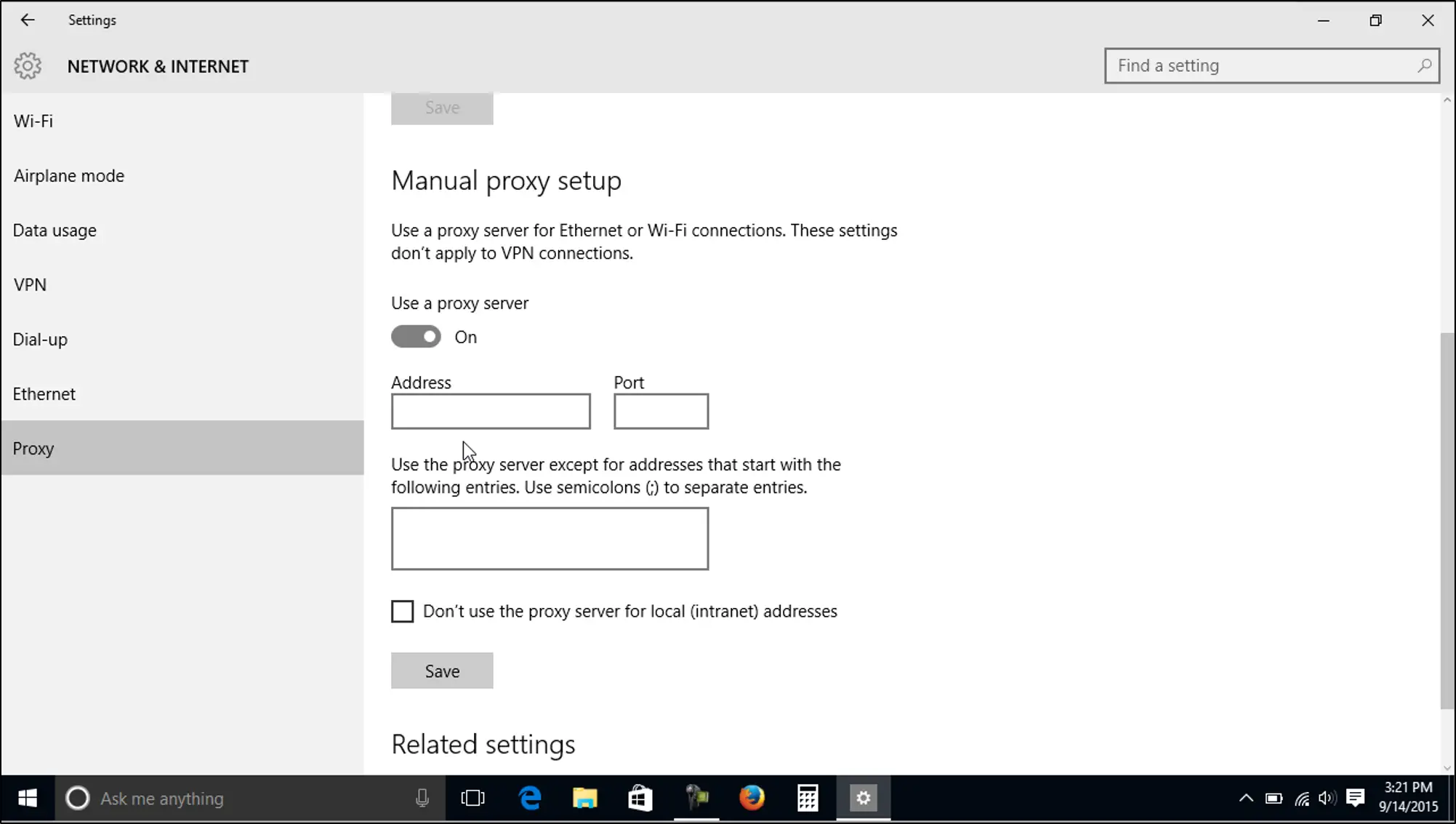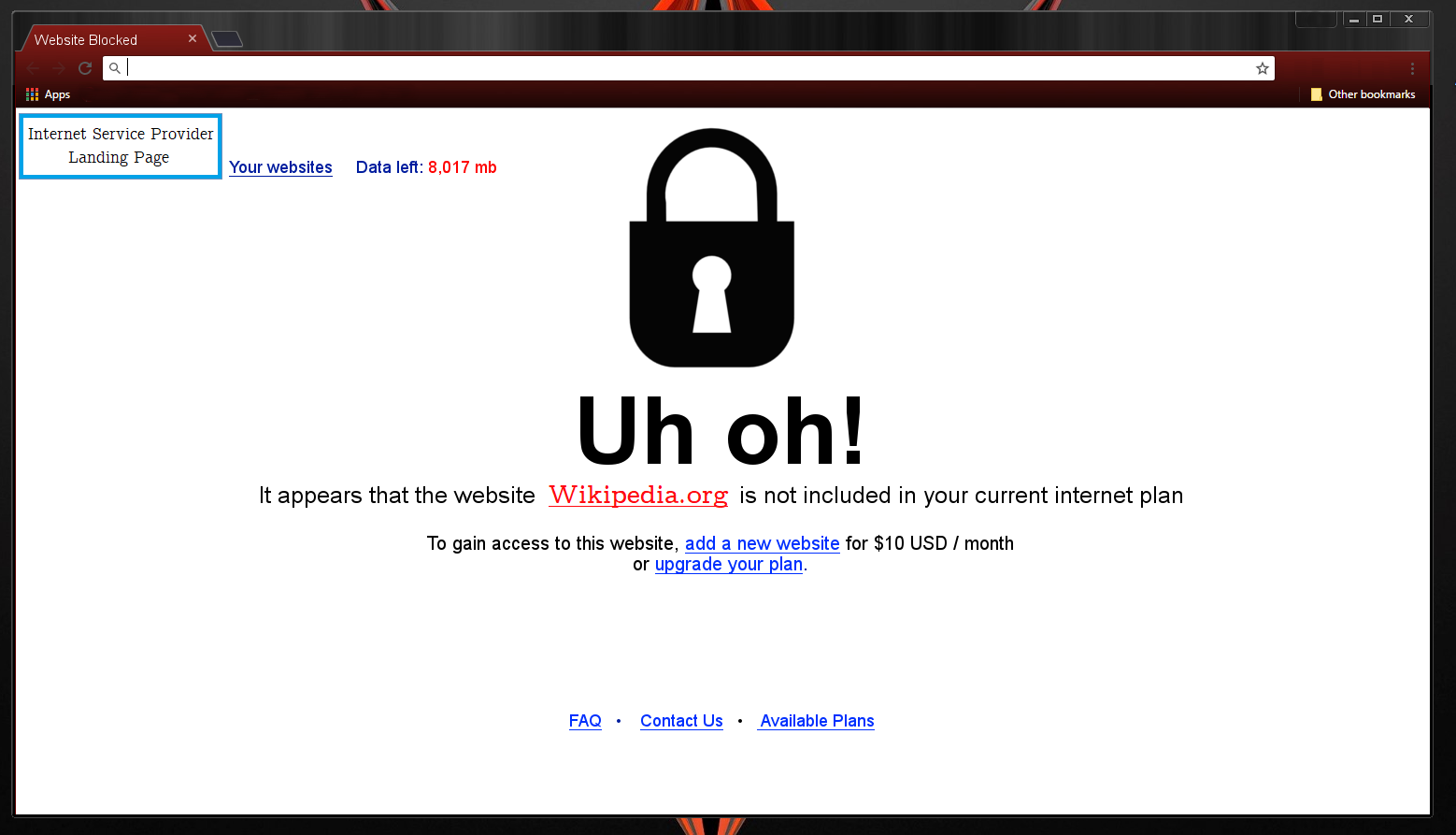Introduction
Welcome to the world of proxy servers! In today’s digital age, where online privacy and security are paramount concerns, understanding the concept and functionality of proxy servers has become increasingly important. Whether you are a tech-savvy individual, an internet enthusiast, or a business owner, knowing how proxy servers work can greatly benefit you in various ways.
So, what exactly is a proxy server? Simply put, a proxy server acts as an intermediary between your device and the internet. It acts as a gateway that receives and transmits your internet requests, allowing you to access websites and services while hiding your true IP address.
Proxy servers have gained significant popularity due to their ability to provide users with enhanced online privacy, security, and accessibility. By routing your internet traffic through a proxy server, you can remain anonymous online, mask your real location, and bypass certain restrictions imposed by websites or network administrators.
The functionality of a proxy server is based on the principle of forwarding and storing web data. When you make a request to access a website through a proxy server, it fetches the requested content on your behalf. It then forwards the data to your device while acting as a shield between your system and the target website.
Using a proxy server offers several compelling benefits. Firstly, it enhances your online privacy by masking your IP address, making it difficult for anyone to trace your online activities back to you. This is particularly useful when accessing sensitive information or when you want to browse the internet anonymously.
Secondly, a proxy server improves your security by acting as a barrier between your device and potentially malicious websites or online threats. It can filter out malicious content, block suspicious websites, and prevent unauthorized access to your network.
Lastly, proxy servers offer enhanced accessibility to online content. They can help you bypass geographical restrictions imposed by certain websites or services. By connecting through a proxy server located in a different country, you can access region-restricted content and enjoy a wider range of online entertainment.
There are various types of proxy servers available, each with its own unique features and use cases. Public proxy servers are accessible to everyone and are commonly used for basic online anonymity. Private proxy servers, on the other hand, offer more advanced features and are typically used by businesses or individuals who require enhanced security and control over their internet traffic.
What is a Proxy Server?
A proxy server is a middleman between your device and the internet. It acts as a go-between, forwarding your internet requests to websites and receiving the requested content on your behalf. In essence, it masks your IP address and maintains your anonymity while accessing online resources.
When you connect to the internet without a proxy server, your device communicates directly with the websites or services you’re accessing. This means that your IP address is visible to those websites, potentially exposing your identity and location.
However, when you use a proxy server, your internet traffic is routed through that server before reaching its destination. This intermediary server serves as a buffer, hiding your IP address and replacing it with its own. As a result, the website you’re trying to access sees the IP address of the proxy server instead of your own.
Proxy servers can be thought of as virtual masks, concealing your true identity while accessing online content. They act as guardians of your privacy, preventing websites from tracking your online activities and gathering your personal information.
Not only do proxy servers provide anonymity, but they also offer other advantages. For instance, they can improve your online security. By acting as a barrier between your device and the internet, proxy servers can help filter out malicious content and prevent potential cyber attacks.
In addition, proxy servers can enable access to blocked or restricted content. For example, certain websites or streaming services may be limited to specific geographic regions. By connecting through a proxy server located in a different country, you can bypass these restrictions and access the desired content.
Proxy servers can be used in various settings and for different purposes. Individuals may choose to use proxy servers to protect their privacy, access region-locked content, or bypass internet censorship. Businesses may utilize proxy servers to monitor employee internet activity, control access to certain websites, or enhance security measures.
Overall, proxy servers are powerful tools that offer privacy, security, and accessibility benefits. Whether you’re concerned about online privacy, want to overcome internet restrictions, or need to secure your network, proxy servers can provide the solution you’re looking for.
How Does a Proxy Server Work?
A proxy server acts as an intermediary between your device and the websites or services you want to access. It works by receiving and forwarding your internet requests, allowing you to browse the web while maintaining privacy and security.
When you make a request to access a website, your device sends that request to the proxy server instead of directly reaching the destination server. The proxy server then evaluates the request and either forwards or blocks it based on its configuration or any predefined filtering rules.
If the request is allowed, the proxy server retrieves the requested content from the website on your behalf. It then sends that content back to your device, appearing as if the information came directly from the target server.
One of the key components of the proxy server’s functionality is its ability to mask your IP address. When you access a website through a proxy server, the target server sees the IP address of the proxy server instead of your own. This adds an extra layer of anonymity and helps protect your identity.
There are different types of proxy servers that employ various methods to handle your internet traffic. Some common methods include:
- Forward Proxy: This type of proxy server is positioned between your device and the internet. When you make a request, it forwards the request to the target server on your behalf, and then relays the response back to you. Forward proxies are commonly used for general web browsing and anonymity
- Reverse Proxy: Unlike forward proxies, reverse proxies are positioned closer to the target server. They act as a shield that receives requests from the internet and forwards them to the appropriate server within a private network. Reverse proxies are commonly used for load balancing, caching, or to protect sensitive internal servers.
- Transparent Proxy: Transparent proxies operate without any user configuration or knowledge. They intercept your internet traffic without modifying it, and are typically employed by network administrators to filter and monitor internet activity.
Proxy servers can be accessed through different protocols, including HTTP, HTTPS, SOCKS, and more. Each protocol has its own advantages and uses, depending on the specific requirements.
In summary, a proxy server works by intercepting and forwarding your internet requests to the target server on your behalf. It acts as a middleman that enhances privacy, security, and access to online content. By understanding how proxy servers work, you can take advantage of their benefits and make informed decisions about your online activities.
Benefits of Using a Proxy Server
Using a proxy server offers a range of benefits that can enhance your online experience, privacy, and security. Whether you’re an individual user or a business, leveraging a proxy server can provide you with the following advantages:
- Enhanced Privacy: One of the primary benefits of using a proxy server is the ability to maintain your online privacy. By masking your IP address and acting as an intermediary, a proxy server adds an extra layer of anonymity, making it difficult for websites to track your online activities or gather your personal information.
- Improved Security: Proxy servers can act as a barrier between your device and potentially malicious websites or hackers. They can filter out malicious content, block suspicious websites, and provide an additional level of protection against cyber threats. Proxy servers also enable the use of secure protocols like HTTPS, ensuring encrypted communication between your device and the target server.
- Access to Restricted Content: Many websites or streaming services restrict access based on geographical location. By connecting through a proxy server located in the desired country, you can bypass these restrictions and access region-specific content or services. This opens up a world of entertainment and allows you to enjoy a wider range of online resources.
- Faster Internet Speeds: In some cases, proxy servers can improve your internet speeds. By caching frequently requested content, proxy servers can deliver web pages and resources faster, reducing load times and enhancing your browsing experience. This is especially useful for businesses that handle heavy online traffic.
- Control and Monitoring: For businesses and organizations, proxy servers offer control and monitoring capabilities. Network administrators can implement access controls and filtering policies, controlling which websites users can access and monitoring internet activity. This helps enforce company policies, prevent unauthorized access, and ensure compliance with regulations.
- Bandwidth Optimization: Proxy servers can optimize bandwidth usage by caching content and compressing data. This leads to reduced bandwidth consumption, especially in enterprise-level environments with multiple users accessing the internet simultaneously. As a result, businesses can save on internet costs and improve overall network performance.
Whether you’re concerned about privacy, security, or accessing restricted content, a proxy server can be a valuable tool. By leveraging the benefits it offers, you can enjoy a more private, secure, and unrestricted online experience.
Types of Proxy Servers
Proxy servers come in different types, each serving specific purposes based on their functionalities and configurations. Understanding the various types can help you choose the right proxy server for your specific needs. Here are some common types of proxy servers:
- HTTP Proxy: An HTTP proxy is designed to handle HTTP requests. It acts as an intermediary between your device and the web server, forwarding the HTTP requests and fetching the responses. HTTP proxies are commonly used for web browsing and can provide basic anonymity and caching capabilities.
- HTTPS Proxy: An HTTPS proxy functions like an HTTP proxy, but it is specifically designed to handle HTTPS requests. HTTPS proxies can encrypt the traffic between your device and the target server, ensuring secure communication. They are commonly used when accessing websites that require SSL/TLS encryption.
- SOCKS Proxy: SOCKS (Socket Secure) proxies operate at the transport layer of the OSI model. They can handle various types of internet traffic, including HTTP, FTP, and P2P connections. SOCKS proxies offer more flexibility and can provide anonymity and access control for different types of applications.
- Transparent Proxy: A transparent proxy intercepts your internet traffic without modifying it. It is typically used by network administrators to monitor and control internet activity within a network. Transparent proxies are transparent to the user, as they do not require any special configuration on the device.
- Reverse Proxy: A reverse proxy sits between the client and the web server, acting on behalf of the server to handle client requests. It can distribute incoming traffic across multiple servers, balance the load, and provide caching and security features. Reverse proxies are commonly used in high-demand websites or applications to improve performance and enhance security.
- Residential Proxy: Residential proxies utilize IP addresses assigned to residential users. They provide a higher level of anonymity and mimic real user behavior, making them useful for tasks like web scraping, ad verification, and accessing geo-restricted content.
It’s important to note that these are just a few examples of the types of proxies available. Each type has its own advantages and use cases. In many cases, proxy servers can also be customized and configured based on specific requirements, allowing for more tailored functionalities and features.
Understanding the different types of proxy servers can help you make informed decisions when it comes to selecting the most suitable option for your needs. Whether you want basic web browsing anonymity, secure communication, or advanced load balancing capabilities, there is a proxy server type that can cater to your specific requirements.
Public vs. Private Proxy Servers
When it comes to proxy servers, there are two main categories: public and private. Each type offers different levels of access, control, and anonymity. Understanding the differences between public and private proxy servers can help you determine which option is best suited for your needs.
Public Proxy Servers:
Public proxy servers are openly available to anyone on the internet. They are typically free and can be accessed by anyone who wishes to use them. Public proxies are often used by individuals who want to browse the web anonymously or bypass certain restrictions.
One of the advantages of using public proxy servers is that they require no upfront cost. However, there are some inherent drawbacks to consider. Firstly, since public proxies are accessible to anyone, they can be overcrowded and have limited bandwidth, which can result in slower internet speeds.
Secondly, public proxy servers may not always be reliable or secure. Since they are accessible to a large number of users, there is a higher risk of encountering proxies that are misconfigured, slow, or even compromised. Additionally, public proxies might log your online activities, compromising your privacy.
Furthermore, the IP addresses of public proxies are often well-known to web services and may be blocked or restricted. This can prevent you from accessing certain websites or services that actively block public proxy IP ranges.
Private Proxy Servers:
Private proxy servers, as the name suggests, are exclusive to a single user or organization. These servers offer more control, enhanced security, and dedicated resources compared to their public counterparts.
Private proxy servers provide dedicated IP addresses, which are less likely to be blocked by websites or services that filter public proxy IP ranges. This ensures better accessibility and a higher level of reliability when accessing online content.
Moreover, private proxy servers offer improved security and privacy. Since only the user or organization has access to the server, there is a reduced risk of compromising sensitive information or encountering malicious activity. Private proxies also eliminate the risk of overcrowded servers, ensuring faster internet speeds and a smoother browsing experience.
However, it’s important to note that private proxy servers come at a cost. Unlike public proxies which are free, private proxies require a subscription or payment. The price will vary depending on factors such as the number of IP addresses, dedicated bandwidth, and additional features provided.
Private proxy servers are commonly utilized by businesses, organizations, or individuals who require specialized functionalities, enhanced security, and reliable performance. They are particularly useful for tasks such as web scraping, data harvesting, or accessing region-specific content.
Deciding whether to use a public or private proxy server depends on your specific needs and priorities. If you require basic anonymity and don’t mind potential limitations and risks, public proxies may be sufficient. However, if reliability, security, and dedicated resources are paramount, private proxy servers are the recommended choice.
Use Cases for Proxy Servers
Proxy servers have a wide range of use cases and can be beneficial for different individuals and organizations. Here are some common scenarios where proxy servers are widely used:
- Enhancing Online Privacy: Proxy servers are commonly employed to maintain online anonymity and protect privacy. Individuals who want to keep their online activities private and prevent websites from tracking them can use proxy servers to mask their IP addresses and browse the internet with increased anonymity.
- Accessing Restricted Content: Many websites and online services impose geographical restrictions, limiting access to certain content based on the user’s location. Proxy servers enable users to bypass these restrictions by connecting through a server located in a different country. This allows individuals to access region-specific content such as streaming services or websites that are blocked in their location.
- Improving Cybersecurity: Proxy servers can act as a protective barrier between your device and potentially harmful websites or online threats. By filtering out malicious content and blocking suspicious websites, proxy servers add an extra layer of security to your internet browsing. They can prevent phishing attacks, malware infections, and unauthorized access to your network.
- Controlling Internet Usage in Organizations: Businesses and organizations often utilize proxy servers to control and monitor internet usage among employees. Proxy servers allow network administrators to implement access controls, restrict certain websites or categories, and monitor internet activities to ensure compliance with company policies and regulations. This can help enhance productivity, prevent data breaches, and optimize network bandwidth.
- Data Scraping and Web Crawling: Proxy servers are widely used in data scraping and web crawling applications. By rotating IP addresses through proxy servers, data scraping tools can access websites without triggering rate limits or getting blocked. Proxy servers enable efficient and large-scale data extractions, making them essential tools for market research, competitive analysis, and gathering public data.
- SEO Monitoring and Competitor Analysis: Proxy servers play a crucial role in Search Engine Optimization (SEO). Businesses and SEO professionals often use proxy servers to monitor search engine rankings and perform competitor analysis. By simulating requests from different locations and IP addresses, proxy servers provide accurate insights into localized search results, enabling businesses to develop effective SEO strategies.
These are just a few examples of the many use cases for proxy servers. Whether you’re an individual seeking online privacy, a business ensuring cybersecurity, or a data-driven organization requiring web scraping capabilities, proxy servers offer solutions to various internet-related challenges.
Risks and Limitations of Proxy Servers
While proxy servers offer numerous benefits, it’s important to be aware of the potential risks and limitations associated with their usage. Understanding these factors can help you make informed decisions and mitigate any potential drawbacks. Here are some risks and limitations of proxy servers:
- Security Concerns: Proxy servers can introduce security vulnerabilities if not properly configured or maintained. Some public proxies may not have robust security measures in place, leaving your data and communications vulnerable to interception or manipulation. It’s essential to use trusted and reputable proxy services and ensure encryption protocols are properly implemented.
- Reliability and Performance: The performance and reliability of proxy servers can vary. Public proxy servers, in particular, may have limited bandwidth and server resources, resulting in slower internet speeds and potential connectivity issues. Additionally, the high usage of public proxies can lead to overcrowding and reduced performance.
- Data Logging: While some proxy servers claim to provide anonymity and privacy, it’s important to be aware that not all proxies adhere to strict no-logs policies. Public proxies, in particular, may log your internet activities, compromising your privacy. It’s crucial to choose proxy services that prioritize privacy and have transparent data handling practices.
- Blocked Proxy Servers: Some websites and services actively block or restrict access from proxy servers. This can prevent you from accessing certain content or services even when using a proxy. It’s important to keep in mind that not all proxy servers can bypass these restrictions, and you may encounter limitations when trying to access certain websites or platforms.
- Misconfigured or Malicious Servers: Proxy servers, especially public ones, may be misconfigured or even operated by malicious entities. Misconfigured servers may expose your IP address or leak sensitive information, compromising your privacy and security. Malicious servers might intentionally intercept or modify your internet traffic, putting your data at risk. It is crucial to choose reputable proxy providers and perform due diligence on the servers you are using.
- Legal and Ethical Considerations: While proxy servers can provide anonymity and bypass restrictions, it’s important to understand and comply with the legal and ethical boundaries associated with proxy server usage. Using proxies for illegal activities, such as hacking, fraud, or copyright infringement, can have legal consequences. It’s advisable to use proxy servers responsibly and within the boundaries of the law.
By being aware of these risks and limitations, you can take necessary precautions and make informed decisions when utilizing proxy servers. It’s essential to choose reputable providers, prioritize security measures, and understand the potential implications that proxy server usage may have on your online activities.
How to Set up a Proxy Server
Setting up a proxy server may seem daunting, but with the right guidance, it can be a relatively straightforward process. Whether you want to set up a proxy server for personal use or for your organization, here are the general steps to get you started:
- Choose the Right Proxy Server Software: The first step is to select the appropriate proxy server software. There are various options available, both free and paid, such as Squid, Nginx, Apache, and WinGate, among others. Choose a software that aligns with your needs, operating system, and technical proficiency.
- Install and Configure the Proxy Server Software: Once you’ve chosen the software, follow the installation instructions provided by the developer. This typically involves downloading the software, running the installer, and configuring the necessary settings. Consult the documentation or online resources specific to the software you’re using for detailed installation and configuration instructions.
- Define Proxy Server Settings: After the installation, you will need to define the proxy server settings. This includes specifying the proxy server IP address and port number, configuring authentication if necessary, and setting up any additional features or functionalities required. This step is crucial to ensure the proxy server functions as desired and meets your specific requirements.
- Test and Validate the Proxy Server: Before putting the proxy server into use, it’s essential to test and validate its functionality. Confirm that the proxy server is properly configured and able to handle your internet traffic. Test it by accessing various websites, ensuring that pages load correctly and that your IP address is masked.
- Configure Proxy Settings on Clients: To leverage the proxy server’s benefits, you need to configure the proxy settings on the devices or applications that will be using the proxy server. This typically involves specifying the proxy server IP address and port number in the network settings or proxy configuration options of the chosen devices or applications.
- Maintain and Monitor the Proxy Server: Once your proxy server is up and running, make sure to regularly maintain and monitor it. Keep an eye on logs, monitor network traffic, and update the software as necessary to ensure the security and performance of the proxy server. Regular maintenance can help address any issues and optimize the proxy server’s performance.
It’s worth noting that setting up a proxy server may require technical knowledge and expertise. If you’re unsure about any step or encounter difficulties, consider seeking guidance from online forums, documentation, or consulting with IT professionals familiar with proxy server setup.
Remember, the specific steps may vary depending on the software and operating system you choose. Be sure to refer to the official documentation and resources provided by the proxy server software developer for detailed instructions tailored to your setup.
Conclusion
Proxy servers play a significant role in enhancing online privacy, security, and accessibility. They act as intermediaries between your device and the internet, allowing you to browse the web anonymously and bypass certain restrictions. Whether you’re an individual seeking online privacy or a business looking to optimize network performance, proxy servers offer a range of benefits.
By masking your IP address, proxy servers provide an additional layer of anonymity, protecting your identity and online activities from prying eyes. They can also improve security by filtering out malicious content and preventing unauthorized access to your network. Additionally, proxy servers enable access to region-restricted content, expanding your online entertainment options.
It’s important to understand the different types of proxy servers available, such as HTTP, HTTPS, SOCKS, and reverse proxies, each catering to specific use cases. Public proxy servers offer basic anonymity but may come with limitations, while private proxy servers provide enhanced control, security, and dedicated resources.
However, as with any technology, proxy servers have their limitations and risks. Security vulnerabilities, logging of data, potential performance issues, and the need for responsible and legal usage are factors to consider when utilizing proxy servers.
Setting up a proxy server requires careful planning, choosing the right software, configuring settings, and maintaining the server to ensure its optimal performance. If you encounter difficulties, referring to official documentation or seeking professional assistance can be beneficial.
In conclusion, proxy servers offer a valuable solution for privacy-conscious individuals, businesses seeking enhanced security, and those looking to bypass internet restrictions. With their ability to hide your IP address, provide security measures, and enable access to restricted content, proxy servers bring numerous benefits to the digital world. Understanding their functionalities, choosing the right type, and implementing them effectively can help you navigate the online landscape with improved privacy, security, and accessibility.

























